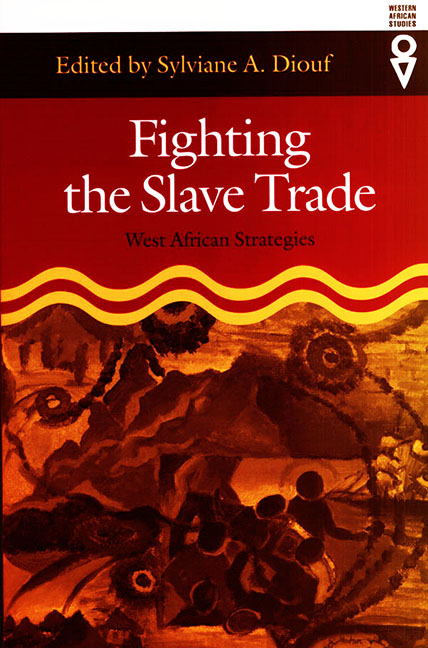Epilogue: Memory as Resistance: Identity and the Contested History of Slavery in Southeastern Nigeria, an Oral History Project
Published online by Cambridge University Press: 30 August 2017
Summary
THE HISTORIOGRAPHY OF AFRICA has yet to capture the horror and terror that accompanied the African dimension of the slave trade. Within world history it is the narrative of those who became African American slaves that has taken pride of place and come to exemplify a universal chronicle of suffering, pain, and eventual triumph. However, the contemporary political agenda of African descendants within the Americas has led historians to shy away from tackling the complex and contradictory narrative of the circumstances under which these people were enslaved as well as the story of those enslaved Africans who did not end up in the Americas, across the Sahara, or in the Indian Ocean but remained within the continent. In other words, this haunting silence creates a void where the voices and experiences of Africans on the continent should be articulated. Historians are confronted with a number of evidential problems that make it especially difficult to complete the narrative of the trade with the voices of these communities who remained. Nonetheless, the narrative of the trade is incomplete without the presence of these voices.
This chapter describes a pilot project that is seeking to document the ways that these experiences are remembered by communities in an area that was intensely involved in the slave trade. Secondarily, it compares these memories with archival and recent statistical studies of the trade to determine the extent to which oral history can be a useful tool for historical reconstruction. The findings are not considered to be typical of any general lived experience of slavery on the African continent but merely a partial chronicle of the experience in one specific area of West Africa—the Biafran hinterland. The preliminary findings of this project give anecdotal verification of some of the gendered patterns of enslavement for the area. Only in the Bight of Biafra did the number of women enslaved reach near parity with that of men.
SOUTHEASTERN NIGERIA AND THE SLAVE TRADE
The interior of the Bight of Biafra is inhabited by the Igbo people and a smaller number of other ethnolinguistic groups. It was one of the most important sources of enslaved Africans sent to the Americas in the eighteenth and early nineteenth centuries. It is estimated that 1.5 million Africans were exported between 1660 and 1841.
- Type
- Chapter
- Information
- Fighting the Slave TradeWest African Strategies, pp. 219 - 226Publisher: Boydell & BrewerPrint publication year: 2004



